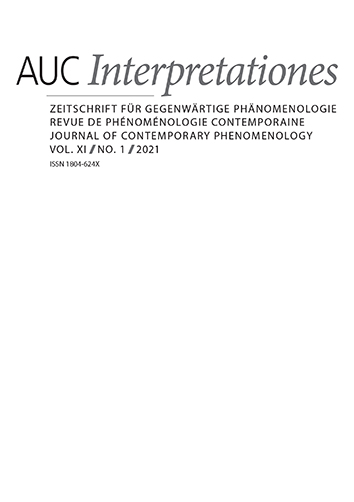AUC INTERPRETATIONES, Vol 1 No 1 (2011), 99–111
L’heureux paradoxe de la perception chez Merleau-Ponty et l’inachèvement du perçu
Gemma Daou
zveřejněno: 13. 01. 2015
Abstract
This article attempts to understand the meaning of the paradox of perception it is conceived by Merleau‑P onty starting from his criticism of the idealistic conception of consciousness and the legacy of the first phenomenology. It concerns the subject of perception, as the original modality of consciousness that gives access to the perceived world. This access which is based on the contradiction between immanence and transcendence, expresses the temporality of experience, in the sense that it gives to it a character of incompleteness. Thus, intentionality acquires a new consistency, and it becomes a living intentionality in perpetual evolution. Such thinking differs from the phenomenological tradition in that it conceives of certainty not as timeless setting, but as a constantly urachieved process. What are the presuppositions of such thinking and how Merleau-Ponty happens to give a new meaning to perception? These are the questions addressed in this article.

L’heureux paradoxe de la perception chez Merleau-Ponty et l’inachèvement du perçu is licensed under a Creative Commons Attribution 4.0 International License.
148 x 210 mm
vychází: 2 x ročně
cena tištěného čísla: 180 Kč
ISSN: 1804-624X
E-ISSN: 2464-6504
